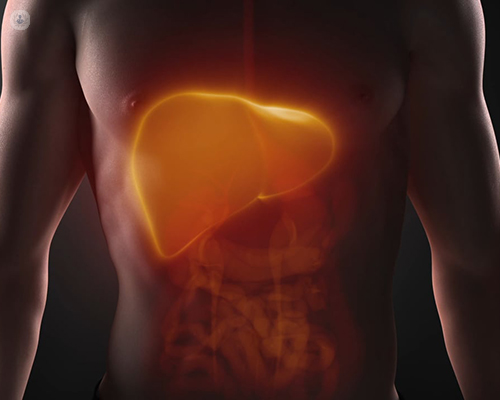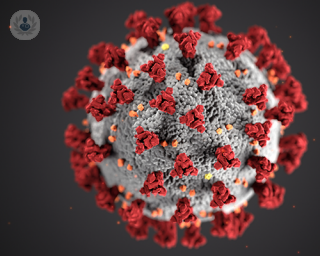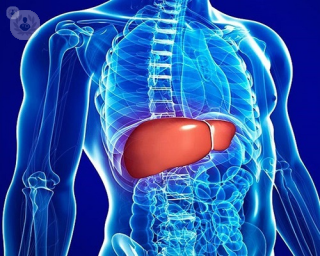What is hepatitis?
Viral hepatitis is a form of hepatitis, which is the general term for inflammation affecting the liver, consequently causing it to function improperly. There are several kinds of viral hepatitis, including A, B, C, D, and E.

Hepatitis can also be caused by drinking too much alcohol. There is also another form of hepatitis called autoimmune hepatitis, in which the immune system attacks the liver and damages it.
What are the symptoms?
Symptoms of hepatitis include:
- Cloudy urine
- Fatigue
- Mild fever
- Itching
- Jaundice
- Loss of appetite
- Nausea or vomiting
- Weight loss
- Headaches
- Pharyngitis and cough
What are the causes of hepatitis?
Hepatitis can occur for different reasons:
- Immune cells of the body that attack the liver;
- Viral infections;
- Liver damage caused by excess alcohol or toxins;
- Overdose of medications.
Viral hepatitis can be passed on in different ways, depending on the type. For example, hepatitis B is common worldwide, but is not common in the UK, and it is spread through the blood of an infected person. Hepatitis D is another form of hepatitis which only affects those already infected with hepatitis B.
Hepatitis C is the most common type of hepatitis in the UK. It is also transmitted through the blood of an infected person, and is most commonly transmitted through needle sharing when injecting drugs.
Hepatitis E is on the increase in Europe and is passed on through raw or undercooked pork and offal. It can also be passed on through uncooked venison, shellfish, and wild boar.
Can it be prevented?
Hepatitis A and B can be prevented through a vaccine. To avoid getting hepatitis B and C, it is important not to share personal items such as razor blades, and make sure that proper hygiene protocol is followed if you are getting a body piercing or tattoo.
Hepatitis A and E can be avoided by not consuming or using food or water that is not clean, washing hands thoroughly after going to the bathroom, and washing hands after being in contact with the blood, faeces or bodily fluids of an infected person.
How is viral hepatitis treated?
The treatment varies according to the cause of the condition. The treatment for hepatitis A, for example, may simply be bed rest. In the case of hepatitis B, medication may be administered but only if chronic. Hepatitis C is treated through antiviral medications. Your hepatologist or specialist will advise on the best form of treatment, if necessary.
In cases of liver damage, a transplant may be necessary.
11-13-2012 06-27-2023Viral hepatitis
Dr Matthew Foxton - Hepatology (liver specialist)
Created on: 11-13-2012
Updated on: 06-27-2023
Edited by: Karolyn Judge
What is hepatitis?
Viral hepatitis is a form of hepatitis, which is the general term for inflammation affecting the liver, consequently causing it to function improperly. There are several kinds of viral hepatitis, including A, B, C, D, and E.

Hepatitis can also be caused by drinking too much alcohol. There is also another form of hepatitis called autoimmune hepatitis, in which the immune system attacks the liver and damages it.
What are the symptoms?
Symptoms of hepatitis include:
- Cloudy urine
- Fatigue
- Mild fever
- Itching
- Jaundice
- Loss of appetite
- Nausea or vomiting
- Weight loss
- Headaches
- Pharyngitis and cough
What are the causes of hepatitis?
Hepatitis can occur for different reasons:
- Immune cells of the body that attack the liver;
- Viral infections;
- Liver damage caused by excess alcohol or toxins;
- Overdose of medications.
Viral hepatitis can be passed on in different ways, depending on the type. For example, hepatitis B is common worldwide, but is not common in the UK, and it is spread through the blood of an infected person. Hepatitis D is another form of hepatitis which only affects those already infected with hepatitis B.
Hepatitis C is the most common type of hepatitis in the UK. It is also transmitted through the blood of an infected person, and is most commonly transmitted through needle sharing when injecting drugs.
Hepatitis E is on the increase in Europe and is passed on through raw or undercooked pork and offal. It can also be passed on through uncooked venison, shellfish, and wild boar.
Can it be prevented?
Hepatitis A and B can be prevented through a vaccine. To avoid getting hepatitis B and C, it is important not to share personal items such as razor blades, and make sure that proper hygiene protocol is followed if you are getting a body piercing or tattoo.
Hepatitis A and E can be avoided by not consuming or using food or water that is not clean, washing hands thoroughly after going to the bathroom, and washing hands after being in contact with the blood, faeces or bodily fluids of an infected person.
How is viral hepatitis treated?
The treatment varies according to the cause of the condition. The treatment for hepatitis A, for example, may simply be bed rest. In the case of hepatitis B, medication may be administered but only if chronic. Hepatitis C is treated through antiviral medications. Your hepatologist or specialist will advise on the best form of treatment, if necessary.
In cases of liver damage, a transplant may be necessary.


COVID-19: how does it affect the liver and liver disease patients?
By Professor Kevin Peter Moore
2024-11-20
Professor Kevin Moore provides you with what experts currently know about coronavirus COVID-19's impact on the liver and on the treatment of liver disease patients. See more


What causes jaundice in babies and adults?
By Dr Deepak Joshi
2024-11-20
Jaundice is one of the most common conditions that can affect newborns with an estimated 6 out of 10 babies developing it. Even though it is much rarer, adults can develop it too. Dr Deepak Joshi, a leading hepatologist in London, explains to us the different causes in babies and adults and how it can be treated. See more


What is viral hepatitis and how is it diagnosed?
By Professor Patrick Kennedy
2024-11-19
Leading consultant hepatologist, Dr Patrick Kennedy, explains what viral hepatitis is, what the symptoms are, and how it is diagnosed. See more


Is there a cure for hepatitis? A look at treatments
By Professor Patrick Kennedy
2024-10-24
Leading hepatologist, Dr Patrick Kennedy looks at the treatments for the different forms of viral hepatitis and answers the question of whether there is a cure. See more
Experts in Viral hepatitis
-
Professor Patrick Kennedy
Hepatology (liver specialist)Expert in:
- Liver disease
- Liver function tests
- Viral hepatitis
- Fatty liver
- Alcoholism
- Abdominal pain
-
Professor Daniel Forton
GastroenterologyExpert in:
- Viral hepatitis
- Liver disease
- FibroScan
- Fatty liver
- Endoscopy
- Abdominal pain
-
Professor Michael A G Heneghan
Hepatology (liver specialist)Expert in:
- Cirrhosis
- Autoimmune hepatitis
- Primary sclerosing cholangitis (PSC)
- Liver cancer
- Liver transplant
- Viral hepatitis
-
Dr Andrew Peter Holt
Hepatology (liver specialist)Expert in:
- Cirrhosis
- Alcoholic liver disease
- Fatty liver
- Viral hepatitis
- Primary biliary cholangitis (PBC)
- Liver transplant
-
Dr Matthew Foxton
Hepatology (liver specialist)Expert in:
- Fatty liver
- Liver function tests
- Viral hepatitis
- Endoscopy
- FibroScan
- Liver disease
- See all

The Harborne Hospital - part of HCA Healthcare
The Harborne Hospital - part of HCA Healthcare
Mindelsohn Way, B15 2FQ
No existe teléfono en el centro.
By using the telephone number provided by TOP DOCTORS, you automatically agree to let us use your phone number for statistical and commercial purposes. For further information, read our Privacy Policy
Top Doctors

The Priory Hospital - part of Circle Health Group
The Priory Hospital - part of Circle Health Group
Priory Road, Edgbaston, Birmingham B5 7UG
No existe teléfono en el centro.
By using the telephone number provided by TOP DOCTORS, you automatically agree to let us use your phone number for statistical and commercial purposes. For further information, read our Privacy Policy
Top Doctors

Private Care at Chelsea and Westminster Hospital
Private Care at Chelsea and Westminster Hospital
Chelsea and Westminster Hospital, 369 Fulham Rd.
No existe teléfono en el centro.
By using the telephone number provided by TOP DOCTORS, you automatically agree to let us use your phone number for statistical and commercial purposes. For further information, read our Privacy Policy
Top Doctors
-
The Harborne Hospital - part of HCA Healthcare
Mindelsohn Way, B15 2FQ, BirminghamExpert in:
- Digestive
- Cancer
- Orthopaedic surgery
- Thoracic Surgery
- Diagnostic Imaging
- Obstetrics and Gynaecology
-
The Priory Hospital - part of Circle Health Group
Priory Road, Edgbaston, Birmingham B5 7UG, EdgbastonExpert in:
- Cancer
- General Surgery
- Orthopaedic surgery
- Thoracic Surgery
- Obstetrics and Gynaecology
- Urology
-
Private Care at Chelsea and Westminster Hospital
Chelsea and Westminster Hospital, 369 Fulham Rd., Central LondonExpert in:
- General Surgery
- Dermatology
- Paediatric Dermatology
- Paediatrics
- Preventive paediatrics
- Adult and paediatric services
- See all
- Most viewed diseases, medical tests, and treatments
- Nutrition
- Abdominal pain
- Skin biopsy
- Vaginal cytology
- Vaginal dryness
- Pelvic pain syndrome
- Anxiety
- Stress
- Digestive diseases
- Intestinal pseudo-obstruction







